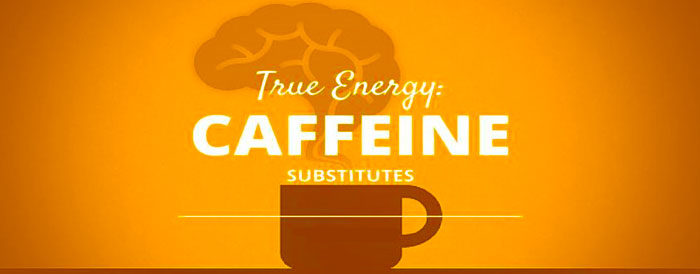
More Caffeine Is Not The Solution For Getting More Energy
Millions of people struggle with fatigue every day.
They feel groggy, have brain fog, don’t sleep well enough or long enough, and they may even lack the the energy for the basic tasks of daily living, like going up and down stairs or cleaning the garage.
Sound familiar?
What’s worse, the most popular drug on the face of the planet, caffeine (the drug most people rely upon to combat that fatigue and to give them energy), has daunting side effects, most significantly including physical addiction.
Sure, while a nice cup of coffee is likely to be harmless, large doses can result in caffeine toxicity or overdose side effects – especially when it’s in combination with the sugar and other additives you’ll find in everything from carbonated energy drinks to the fancy coffee beverages at your local coffee shop.
What you’re about to learn will likely surprise you:
Caffeine and coffee don’t provide actual chemical energy, but simply fool your body into producing fake energy.
Caffeine consumption triggers the release of adrenaline from your adrenal glands, resulting in a longer-term drop in your energy levels and even greater dependence on these compounds for getting you through the day.
So what exactly happens to your energy levels each time you drink a cup of coffee?
First, your brain sends a message to the pituitary gland, and the pituitary then releases a hormone that tells your adrenal glands to produce the stress hormones adrenaline and cortisol – which basically triggers the exact same stress response your body would use if you are in imminent physical danger.
So if you don’t want the potential for adrenal fatigue, withdrawal, addiction, bone loss and the damaging “fake energy” that coffee and caffeine provides, what’s the alternative?
It all comes down to understanding how your body makes true energy: energy derived from sources other than simply a surge in cortisol or adrenaline, and energy derived from something other than a big dump of blood glucose from your liver in response to stress.
Your body’s true chemical energy currency is adenosine triphosphate, also known as ATP.
Fatigue, both mental and physical, can be traced to insufficient levels of the tiny battery-like ATP molecules, which are derived and created in the cells from food that you eat. By maintaining adequate ATP levels, you keep your true energy levels elevated and your batteries charged.
7 strategies to boost cellular ATP and energy production include:
- Minimize exposure to environmental toxins such as heavy metals cigarette smoke, alcohol, toxins, processed and fatty foods.
- Drink plenty of high quality water, because the cells require significant amounts of water to produce ATP.
- Exercise regularly to stimulate movement in the body’s tissues.
- Get enough B vitamins, since vitamin B-2 supports energy metabolism, B-3 and B-6 aid in ATP production, B-5 helps form mitochondrial enzymes and B-12 is essential for the delivery of oxygen to the cells.
- Include quality sources of vitamin C, because this antioxidant protects cells from damage, which can increase ATP production.
- Supplement with milk thistle extract, an antioxidant that has been shown to strengthen the outer wall of liver cells, which are necessary for making and storing ATP (15).
- Prioritize getting high quality sleep, as sleep is when a large amount of cellular repair and ATP production occurs.

